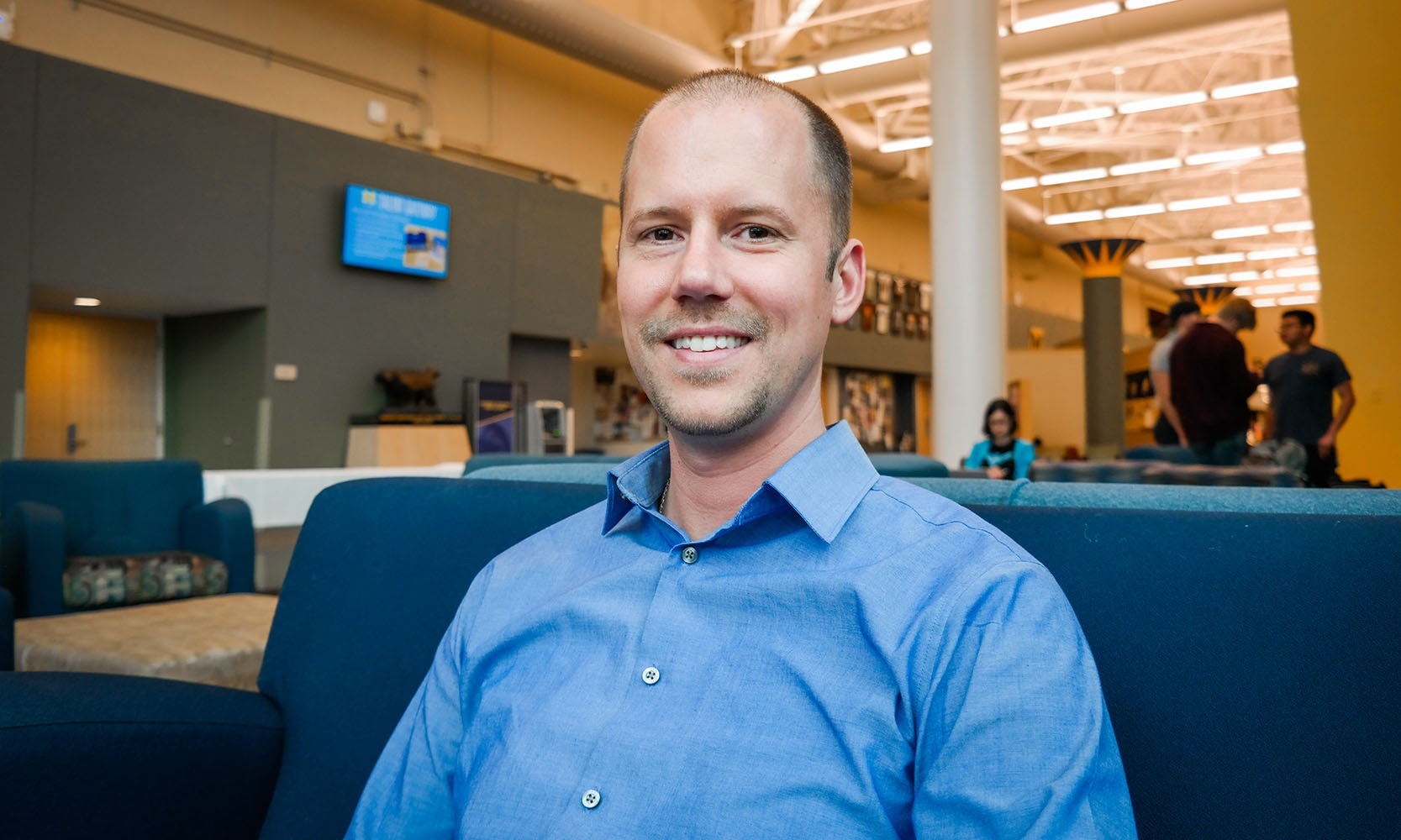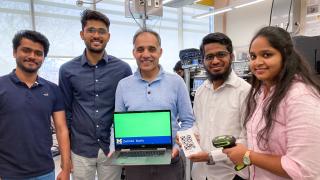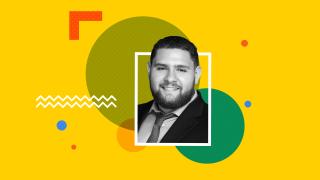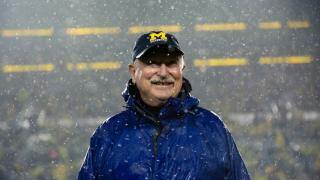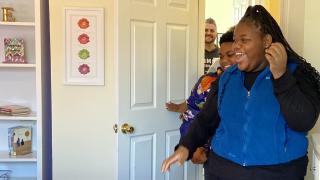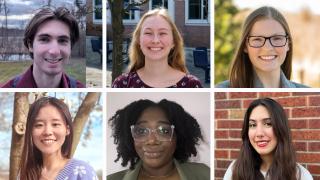
Josh Bylund is a guy who often in the course of conversation will deliberately slow down to make sure he’s choosing words he really means. So when he interrupts himself mid-sentence to tell you, “This is where it gets sort of interesting,” there’s reason to believe he’s not just building the tension.
It’s not that his story about how he got to UM-Dearborn, where Sunday he officially took home his bachelor’s degree in mechanical engineering, has been uninteresting up to this point. Growing up in Muskegon, Bylund was the smart kid who didn’t struggle with anything in school except seeing its value. An subsequent attempt at community college didn’t change that. And so at 20, knowing that he wanted to do something bigger but not feeling like college was going to help him figure it out, he left rather than keep spending money. He got a job bartending, which paid the bills. And in his free time, he randomly discovered something far away from a college track that gave him a little momentum.
“It was right around the time that ESPN started televising World Series of Poker tournaments,” Bylund remembered. “And I got really into it. I started playing with friends, then online. I studied game strategy, and I got pretty good pretty quick. Eventually, I was making more money playing cards than I was at my bartending job.”
It even started to feel like something with career potential. Within a few years, he quit bartending to play cards full time. And when things felt solid enough, he and his wife made the really big leap — to Las Vegas, where the ceiling for professional poker players was substantially higher.
“Things were going well — for a while,” Bylund said, telegraphing a next twist in the story. Poker, especially in Vegas, is not a recession-proof gig. Its economy, Bylund explained, depends on a balanced ecosystem of full-time professional players and out-of-towners who “donate” to the larger economy a weekend trip at a time. That money then circulates among the community of pros. But when you have a broader problem with the economy like you had in 2008, people cut back on their discretionary spending, and the whole system starts to collapse.
Bylund watched his winnings steadily decline over the next few years. And faced with making a career change, he turned to the thing that had never really given him answers: school. He’s straight up about the fact that returning to college was a purely practical decision. He started with an associate degree out in Nevada, then scouted schools where he could finish a bachelor's. He zeroed in on UM-Dearborn because of its affordability and strong reputation for engineering. He was always good at math, and the field had a strong career outlook.
But Bylund said once he got to campus, his attitude started to shift. He connected with the other students and his professors. Even the material was interesting. For the first time in his life, he actually started to enjoy being in school.
“I think my class with Professor Hugh Huntley is where it started,” Bylund remembers. “Part of it was his passion — so even if you didn’t care, or didn’t want to, he could make you. But he also had this way of relating all the math and physics to the real world. For example, we studied a lot about the stress that huge structures like bridges have to withstand. And it just made me look at the world with totally different eyes: Like, you start looking around and you realize almost everything that makes our modern world tick was engineered by somebody. Something about that made this all feel like it mattered.”
In some upper-level courses, the problems got even bigger. A class with Professor and Mechanical Engineering Chair Oleg Zikanov took the students headlong into the challenges posed by climate change — and the role engineers could play in developing solutions. That class, in particular, has been transformative for Bylund. He now considers working in the field of renewable energy — or anything that “helps humanity and the earth” — to be the backdrop for a dream career.
For now, though, he’s happy to have landed his first engineering job. He’ll be taking a new position at the automotive supplier where he did a co-op this past year, and the goals are simply to get some experience, get a steady paycheck and have some stability in his life. When we ask him to contrast his present moment to his life 10 years ago, he smiles, looks for the right words, and finally describes it as one of those life 180s that’s “difficult to comprehend.”
He used to have more flexibility, he said, and maybe a little more adventure. On the other hand, his new path offers up one virtue his old life never really could deliver: meaning, purpose, a connection to the world around him. Whatever words you choose, for Bylund they’re all feeling like good options.

